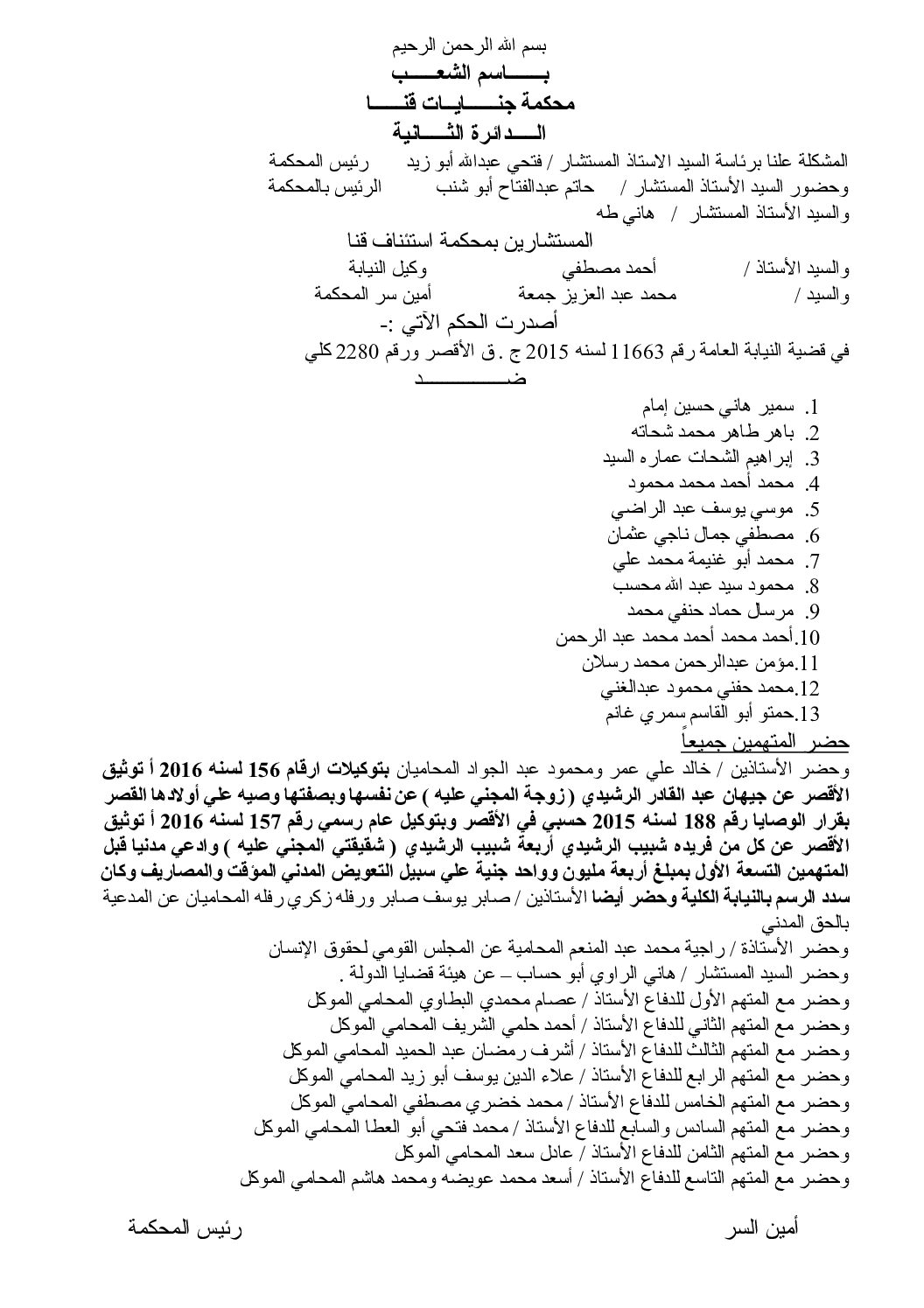Tax Justice | ECESR Publishes “The State of Tax System,” Egyptian-Tunisian Joint Study

ECESR takes part in a joint study between Egypt and Tunisia
The State of Tax System by the Arab NGO Network for Development (ANND)
Publication Title: The State of Tax System: Egypt-Tunisia
Prepared by: Heba Khalil & Abdul Jalil al-Badawi
Publication Date: October 2014
About the publication
The Arab NGO Network for Development (ANND) released a book titled “The State of Tax System”, a comparative study on the tax systems in Egypt and Tunisia. It includes two studies prepared by the researcher Heba Khalil of the ECESR, and Dr. Abdul-Jalil al-Badawi of the Tunisian Forum for Economic and Social Rights.
Egypt Paper: Tax Policy in Egypt by Heba Khalil, an ECESR researcher
Egypt paper titled “Tax Policy in Egypt” points out that the tax system in Egypt is suffering from a chronic gap between the aspirations of citizens to equality and social justice on the one hand, and between economic plans, particularly the tax system restructuring initiated by the successive governments on the other hand. The top priority of the successive governments has been to reduce the budget deficit and dealing with the state budget as a classified governmental document that has nothing to do with citizens. The importance was attached to preparing the state budget so as to make sure the overall budget deficit does not widen, or limitedly widen. Thus, the tax system has become a means for the government to increase resources—a means that the government has abused and was forced to resort to external borrowing. The Biblawi and Mahlab governments (from July 2013 to the end of May 3014) relied on loans and grants estimated at about $ 20 billion (about 140 billion pounds) from the Arab Gulf states, which represents about 30% of the total resources in the approved budget for the same fiscal year 2013/2014.
Against this background the paper discusses the social role that could be played by the tax system for redistribution of the tax burden on the one hand, and re-prioritizing spending and redistribution of wealth on the other hand. Hence, the paper begins by posing the most important features of the Egyptian tax system, and the most important levied taxes and tax rates. Then the paper briefly discusses the interaction of citizens and their tax commitment by emphasizing the growing awareness among citizens that “no taxation without representation.”
Tunisia Paper: Tunisian Tax System and its Role in the Establishment of Social Justice by Dr. Abdul-Jalil al-Badawi of the Tunisian Forum for Economic and Social Rights
The Tunisia paper titled “the Tunisian Tax System and its Role in the Establishment of Social Justice” focuses on the period of transition to market economy since 1986. The paper’s first section briefly introduces the most important components of the Tunisian tax system, along with monitoring the shortcomings of the current legislation. In the second section, the paper deals with the various types of taxes and the problems facing the tax system. The third part addresses the most important deficiencies and imbalances that characterize the current tax system; it scrutinizes its contribution to the achievement of more social justice. In conclusion, the study criticizes the current draft tax reform and provides a set of recommendations that Tunisians must struggle to achieve in order to make the tax system in the service of social justice.
About ANND
The Arab NGO Network for Development (ANND) is a regional network, working in 12 Arab countries with nine national networks and 23 NGO members. ANND was established in 1997 and its headquarters is located in Beirut, Lebanon since 2000.
ANND advocates for more sound and effective socio-economic reforms in the region, which integrate the concepts of sustainable development, gender justice, and the rights-based approach. ANND’s programs cover three main areas: 1. development Policies in the region; 2. social and economic reform agendas and the role of international and regional organizations; 3. economic and trade liberalization policies and its social and economic implications.
Study – The State of Tax System (Arabic)

